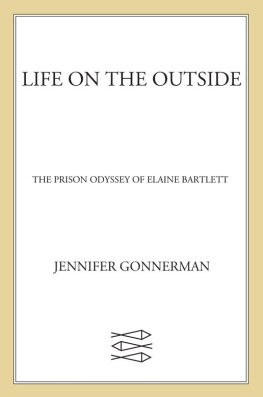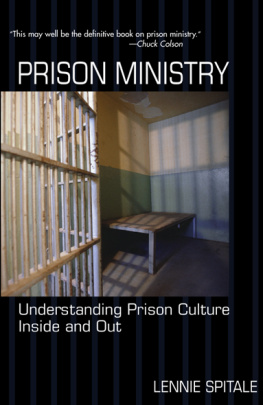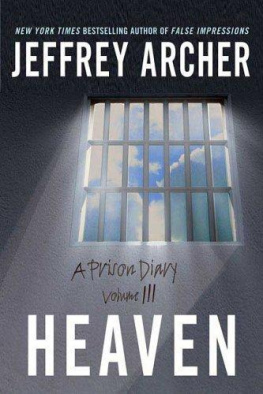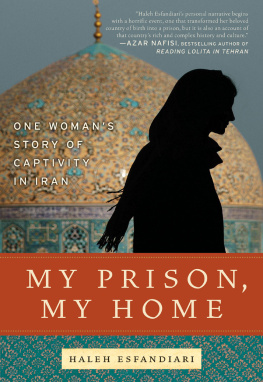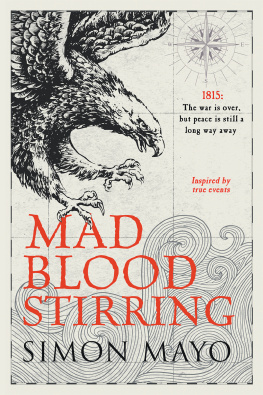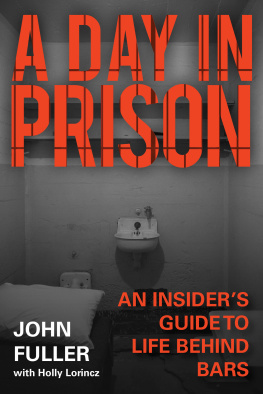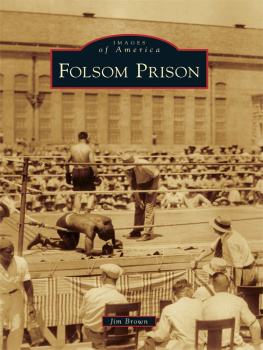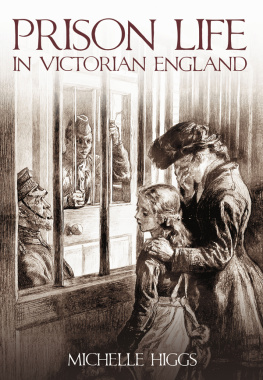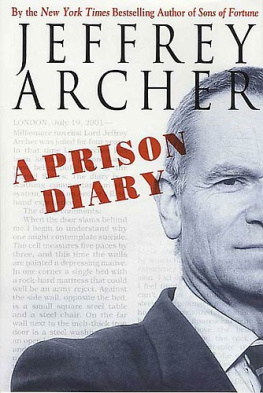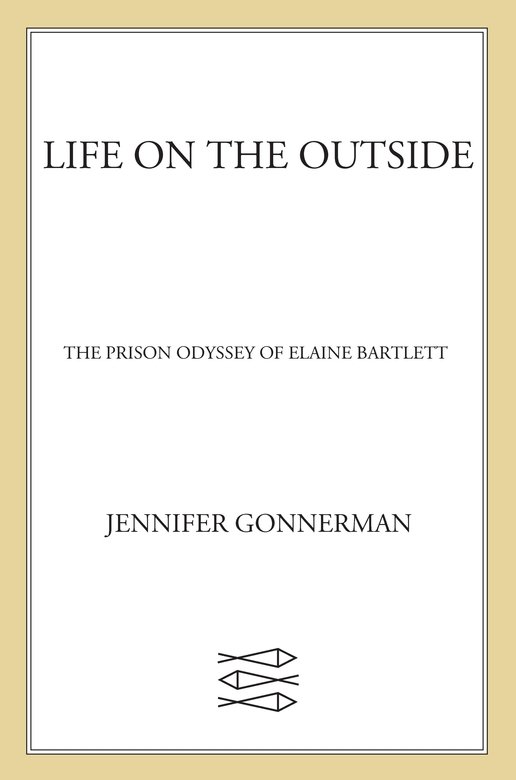This book grew out of many years of reporting on the criminal justice system for The Village Voice . Editor-in-chief Don Forst played a crucial role by permitting me to spend nearly all of 2000 reporting on Elaines daily life, by publishing a lengthy story about her first year out of prison, and then by granting me a generous leave of absence. Karen Cook, then executive editor, encouraged and skillfully edited all the stories that became the background material for this book. Without their support I could not have begun this book, much less finished it.
Many other current and former Voice employees offered encouragement and/or assistance over the years: David Schneiderman, Judy Miszner, Doug Simmons, Guy Trebay, Mark Schoofs, Alex Press, Ed Park, Lynn Yaeger, Meg Handler, Mike Tomasky, Lenora Todaro, Frank Ruscitti, Jessica Bellucci, Joseph Jesselli, Julie Lobbia, Nat Hentoff, Nita Rao, Barbara Cohen, and Adamma Ince. In particular, I am indebted to Wayne Barrett and Bill Bastone for their investigative reporting lessons, and to Tom Robbins for his guidance on how best to tackle the books trickier reporting tasks.
Thank you to editors Colin Harrison, then of Harpers , and Paul Tough, of The New York Times Magazine , for assigning stories that enabled me to delve deeply into New York Citys criminal justice system. I am also grateful to photographer Andrew Lichtenstein for teaching me a great deal about the prison system.
In reporting this book, I benefited from the help of two talented research assistants, Katie Worth and Solana Pyne, as well as a top-notch fact-checker,Darren Reidy. Many friends read drafts of the book and offered smart criticisms: Andrew Goldberg, Katherine Eban Finkelstein, Motoko Rich, Julie Fraize, Karen Cook, Tom Robbins, Andrew Goldberg, and Jane Isay. Anthony C. Thompson and Scott Christianson also read the manuscript and provided crucial expert advice. Special thanks to Julie Fraize and Andrew Goldberg for help with setting up the books website.
Thank you to my agent, David Black, for believing in this book from the moment he heard about it, and then aggressively championing it over the years. And thank you to my editor, Paul Elie, for his enthusiasm and his editing prowess. I owe him an enormous debt, as this book was his idea long before it was mine. Also, thanks to Carol Edwards for her expert copy editing.
Many friends offered much-needed encouragement: Annabel Hobley, Sue Johnson, Tanya Selvaratnam, Farai Chideya, Kimani Paul-Emile, Sontine Kalba, Elizabeth Allan, Lenora Todaro, Amy Tobey, and Greg Beals. I am indebted to the Wang familyHarvey, Sophia, and Sakirafor two-plus years of meals and morale boosts. Thank you to my own family for all their support: Betsy, Mike, Pete, Tobey, and Becky. And thanks to Dave Isay for his vigorous cheerleading down the homestretch.
My greatest debt, of course, is to all the Bartlett family members who shared their memories and insights: Michelle Marcus, Sabrina Bartlett, Donjuan Bartlett, Shyan Bartlett, Rebecca Bartlett, Nathan Brooks, Ronald Jones, Pastor Robert Paschall, Arletha Boge, Barbara Reed-Pearson, Sherry Rene Reed, Sonja Reed, Apache Paschall, Jamel Paschall, Satara Bartlett, and Danae Bartlett. And lastly, thank you to Elaine Bartlett for spending many hundreds of hours with me, for inviting me into her life, and for trusting me with her story.
EPILOGUE
T he Rockefeller drug laws turned thirty years old on May 8, 2003. Despite Governor Patakis promises to rewrite the laws, they remained intact. That spring, Russell Simmons, the hip-hop entrepreneur, joined the battle against them. He teamed up with Randy Credicos group and organized a rally for June 4, to be held on a portable concert stage just south of City Hall. He recruited rap stars to record radio ads and got them aired on the citys hip-hop stations. The list of rally speakers was to include a slew of famous rappers, as well as Elaine Bartlett.
When the rally began, there she was, standing on the stage, next to Satara. Her turn to speak came near the beginning of the rally, right after Fat Joe, but before the Beastie Boys. From the stage, she could see a crowd of thousands. Maybe ten or twenty thousand people, maybe more. It was, of course, the largest audience she had ever had. She looked out at the sea of faces, most of them brown and blackyoung people who had come to see their favorite rappers, plus a smattering of activists. She knew that her friend Lora Tucker was out there somewhere. And so were two of her children from Bedford Hillswomen now in their thirties who had recently come home.
Elaine gripped the podium with both hands and leaned toward the microphone.
For sixteen years, I was known as 84-G-0068, she said in a strong, confident voice. Thats not the person who stands before you today. Im a mother of four, a grandmother of three. When I went to jail, my daughter Satara Bartlett was two, who stands right here by my side today. I spent sixteen years in Bedford Hills Correctional Facility, under the Rockefeller drug laws. I was a first-time offender, never been arrested a day in my life.
When I speak today, Im not only speaking for me; Im speaking for everybody that is locked up and cannot speak. Im speaking for everybodys kids that has went through the pain, the agony, and the suffering. When you lock us up, you lock up our whole families. You destroy lives.
Three JumboTron screens projected her image up Broadway, past City Hall. Her words echoed through the streets, amplified by an elaborate sound system. Im here to tell you these laws need to be repealed, she continued, her voice angry and insistent. Clemency is a Band-Aid. Governor Pataki, you gave me clemency, and that was the happiest day of my life. But today is an even happier day of my life. Because today my people know that they can come together. They know they can stand up, and they can fight for their loved ones. And their loved ones know that were out here fighting for them.
The longer Elaine spoke, the more passionate she became. Soon she was nearly shouting. We want to tell you that we want these laws changed! We want you to take this money, and instead of wasting it on housing us in prison, put it back into our communities. I dont want to have to go to jail and see my kids! I dont want to have to go to jail and see my grandchildren!
Im here to tell you we are sick and tired of the politicians playing with our lives, because thats what you are doing. You tell me that the war on drugs works? Im telling you the war on drugs does not work! And Im telling you that we need you to change these laws and help us rebuild our lives for us and our children. Thank you.
Applause and cheers rose from the crowd. Elaine could see people raising their arms and punching the air with their fists. It was the sortof response that so far had greeted only the rap stars. The next day, a columnist for the Daily News reported that her speech had brought many in the crowd to tears.
Reporters from Russia, Germany, and England lined up backstage to interview Elaine. Meanwhile, a steady stream of performers and hip-hop moguls filed past: P. Diddy, 50 Cent, Damon Dash, Mariah Carey, Busta Rhymes. They took turns at the microphone, denouncing the drug laws, then posed for photos backstage. Standing a few feet away, Elaine felt a little like a celebrity, too.
This afternoon was a rare high point in the midst of yet more personal catastrophes. Two months earlier, she had been fired from her job at Project Renewal because she had not been showing up for work. Despite receiving a written warning from her supervisor, she had continued to take days off without permission. After she was fired, she signed up for unemployment. She started receiving $173 a week, which was almost as much as she had earned when she was working.

